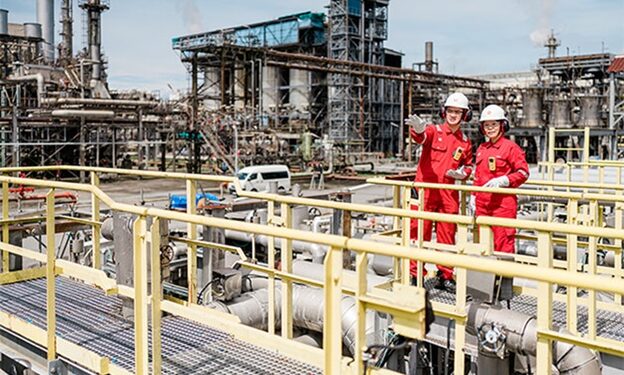The Court of Appeal has ordered Shell MDS (SMDS) Sarawak to pay overdue gas payments and lifting the injunction that forced the Malaysian National Oil company PETRONAS to keep supplying gas without being paid. This decision made by the judges on September 22nd sets a new precedence in the Petroleum Development Act (PDA) 1974 where the on-going tussle by Sarawak’s state oil enterprise, PETROS, to be the sole gas aggregator in Sarawak is no bearing any fruit.
The Judge of the High Court said PETRONAS had always acted according to the gas supply agreement signed with Shell MDS, and that there was no reason to grant the interlocutory relief, pending the resolution of the dispute between PETRONAS and Sarawak-newly-created entity PETROS.
The bench found no breach by PETRONAS, directed SMDS to settle unpaid bills from August 2024 to Oct 5 (payment due Oct 6), and noted the amount could approach RM1 billion including interest.
For years, PETRONAS shouldered the financial risks, political risks, legal risks and the cashflow pain for others while fighting for its survival in its own backyard; but the Court has now said: enough.
This matters because PETRONAS isn’t just another counterparty; under the Petroleum Development Act 1974 (PDA74), it is the exclusive custodian of Malaysia’s petroleum resources—onshore and offshore—with the legal mandate to operate in the national interest in any state while still be respectful of the state laws.
This Court’s decision has set a new precedence in the PETRONAS-PETROS debacle; respect the PDA74 and the commercial contractual obligations and move on.
Three facts that form the debate that seen as a fair move by the Court.
First, PDA74 vests ownership and exclusive rights in PETRONAS; that legal bedrock has been reaffirmed repeatedly since the formation of Malaysia —including by the Federal Court and by Government statements this year clarifying that even as Sarawak advances its aggregator role, PETRONAS retains the national remit under PDA74.
Secondly, continuity of supply during disputes is a public good—PETRONAS delivered it with all its contractual obligations under the gas supply agreement in Sarawak, including other upstream investments, shouldering (subsiding) other cashflow constraints and financing burden of other upstream activities – things are not made possible even by PETROS or Shell MDS.
Third, cash discipline is not optional when your national oil company funds national priorities through dividends and taxes for decades. In 2024 alone, PETRONAS contributed RM72.4 billion to the Government (including RM32 billion in dividends). Starving the company of lawful receivables while it keeps your plant running is, bluntly, a heavy tax on Malaysians.
Critics will say Shell Downstream was “caught in the middle” after receiving competing invoices from PETRONAS and PETROS. There is a truth in that, Sarawak politics and upholding its rights have made the nation worse in recent years.
The Court handled that with elegant simplicity: respect the PDA74, resolve the interpleader early, but you don’t get gas for free in the meantime. In short, pay what is due based on contractual obligations. On that note, it is a clear case of a fair justice for PETRONAS while Shell MDS are perpetually forced to side the Sarawak state government, lobbyists and executives from PETROS.
On the ground, industry experts will also recognise what the judgment implies about conduct.
The truth is, there has been no public complaint from Shell Upstream or other PACs that PETRONAS failed to settle for gas under upstream contracts; the problem here was a downstream payment halt by SMDS or due to pressure by PETROS despite continued supply.
That matters: it underscores PETRONAS’s good faith on UGSA/contract performance, even as it absorbed the hardship of delivering gas while substantial revenue was withheld for almost year.
“Imagine RM 1 billion of your hard-earned money was held at ransom” said an industry analyst Fahmi Harun from Kuching.
The Court acknowledged this imbalance, where one party is compelled to supply while the other refuses to pay.
Let’s be candid.
SMDS should have been paying diligently since early 2024 and should not be dragged into the politics of Sarawak vs Federal by using legal tussles to find in Court. Afterall, PDA74 existed, agreed by the Sarawak State Ministers, enforced for decades and legally binding between states and the federal Government.
Certainly, the huge quantum owed by Shell MDS isn’t some a small technical issue; it is a huge some for PETRONAS, a national oil company burdened with huge working capital and investments – and this huge sum pays the wells, pipes, maintenance, and, by extension, Malaysia’s fiscal position indirectly.
In practical terms, PETRONAS has been subsidising Shell Sarawak during this standoff; the Court has now moved to end that subsidy and help. It is no surprise that PETRONAS is also helping to build PETROS in that process.
It was a fair decision by the Court for PETRONAS to recoup the time value of money and backfill upstream reinvestment.
These themes echo what many business leaders have been saying in public discourse, including Abdul Halim Hussin, former president of Dewan Perniagaan Melayu Malaysia (DPMM).
When a court upholds contracts and the national energy framework, it isn’t “taking sides”; it is defending predictability, which is precisely what international partners, financiers and Malaysians need.
Pair that with the Prime Minister’s recent clarifications—that PDA74 remains the overarching framework for the oil and gas industry in Malaysia and it is clear that PETRONAS retains its national authority even as Sarawak’s aggregator role matures—and the policy signal is coherent: invest, but respect the rules.
Some will argue the decision is a setback for market liberalisation in Sarawak.
That misreads the moment.
The Court did not unwind PETROS’s role; it simply refused to let a payment moratorium ride on the back of an unsettled commercial tussle between PETRONAS and Shell. The Court made a fair conclusion to Shell MDS – Pay for what you receive; resolve the aggregator question quickly; protect the system while you argue.
That is how you de-risk Malaysia’s gas value chain—not by pushing receivable risk onto a national balance sheet that also funds schools, hospitals and the energy transition.
In the end, siding with PETRONAS here is not reflexive nationalism; it is industrial common sense rooted in law. PDA74 gives PETRONAS the mandate; the company fulfilled its duty by keeping the molecules moving; the Court restored commercial equilibrium by ordering payment and lifting a one-sided supply mandate.
Now, that outcome of the Court secures more investor’s confidence in the oil and gas industry in Malaysia – stabilises cashflows, and—most importantly—reaffirms that PDA74 sets precedence in future disputes between PETRONAS and PETROS, or any state in future.
In Malaysia, nation-building institutions are not ATMs for those who game injunctions or those who are blindsided by state laws to overshadow the need for the country. Analysts argue that the rule of federation laws such as PDA74 must be held tight to secure the energy supply and wealth prosperity for future generations.





























